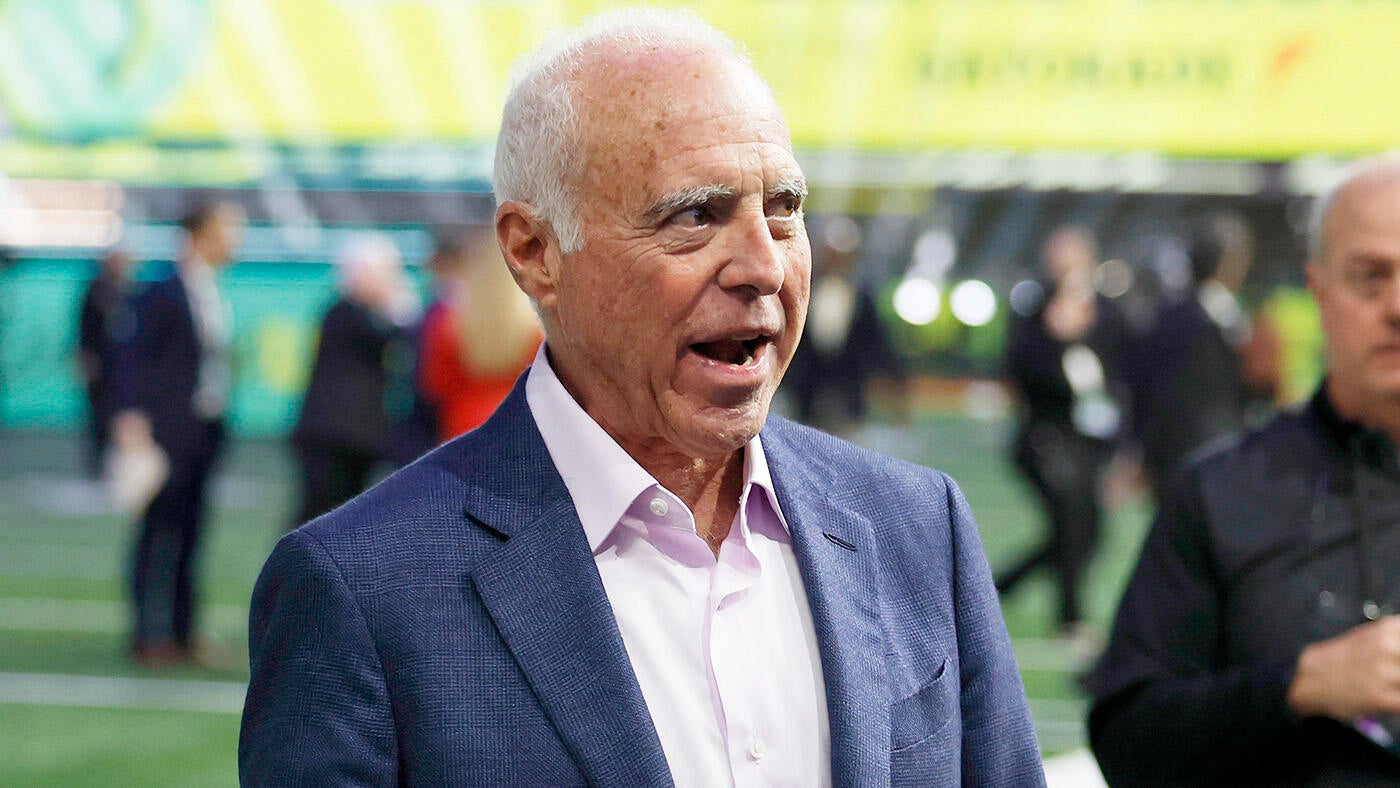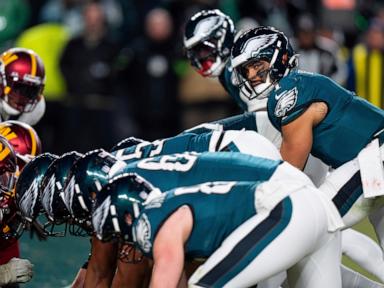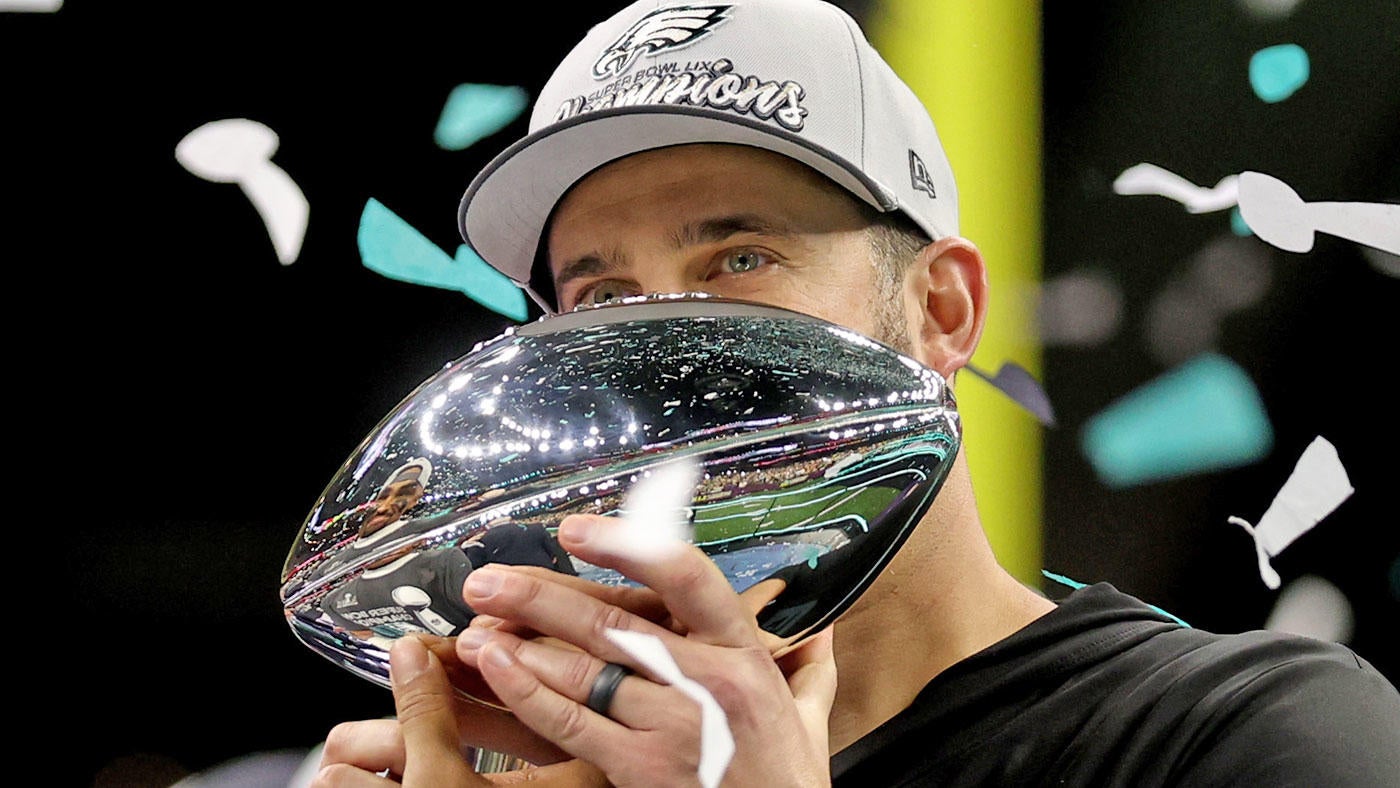The tush push has become the story of the week. With the subject tabled until the next league meetings in May, it could become the story of the entire offseason.
It feels at times like a moving target. Is the concern safety-related? Is it about football aesthetics? Are both a pretext for good, old-fashioned jealousy?
Eagles owner Jeffrey Lurie met with reporters on Tuesday, and the first question related to his team's bread-and-butter play.
"I think for everybody, including myself especially, health and safety is the most important thing when evaluating any play," Lurie said. "We've been very open to whatever data exists on the tush push and there's just been no data that shows that it isn't a very, very safe play. If it weren't, we wouldn't be pushing the tush push.
"But I think, first of all, it's a precision play. It's very practiced. We devote a lot of resources to the tush push. We think we have an unusual use of personnel because we have a quarterback that can squat over 600 pounds and an offensive line that's filled with All-Pro players. That combination with incredible, detailed coaching with [offensive line coach/run game coordinator Jeff] Stoutland, has created a play we can be very successful at. There's other ways of gaining that half yard, that yard. There's quarterback sneaks, other types, but we've been very, very good at it."
He also made a point that often gets made in this context: Any team can use it.
"It's a play that's available to every other team in the league, and I think it hasn't been used more than five times by almost every team in the league," Lurie said. "Buffalo is an exception. The usage rate has gone down over the last year dramatically in the league. We're still very good at it. We're not as good as we were the year before. We've got to adapt."
Adaptation is the key. Trends come and go, offensive and defensive. It's incumbent on defenses to stop a good offensive technique, and it's for offenses to counter effective defensive strategies.
"I think for all of us that have followed NFL football over the decades, there's an ebb and flow to offense and defense," Lurie said. "And typically one of the great things about professional football is that defenses adjust to offenses and offenses adjust to defenses every year. When we won the Super Bowl a few years ago, we really banked on the RPOs and were very, very successful. It didn't take long for defenses to adapt to the RPOs, and if you notice, we weren't as successful and we stopped using it nearly as much. As the passing game becomes more explosive, you see more styles of defense to prevent explosive plays that open up the running game."
Coming up with new approaches and counters to those approaches is part of the fabric of the game.
"It's part of what I think I personally, and I think most of us love about football, is it's a chess match," Lurie said. "Let the chess match play out, and if for any reason it does get banned, we will try to be the very best at short yardage situations. We've got a lot of ideas there, but I think it's a credit to using our personnel in a way. There aren't that many teams that have 600-pound squat quarterbacks and that offensive line. Listen, if there were any injury concern, I would be concerned."
For now, he's not buying the idea that the play has a heightened injury risk.
"I want to know what data there is," Lurie said. "I don't think there is any. If you want to say that it could be, it's hard to make rules on could be's and should be's. The quarterback sneak is one ...




